Deep dive reports
These in-depth reports look in more detail at the key trends and issues affecting the social enterprise community.
This includes our State of Social Enterprise report – the most comprehensive survey of the sector in the UK. Published every two years, it highlights the major trends affecting social enterprises analysing economic factors alongside social and environmental aspects of business performance.

Diversity at work: Leadership demographics and outcomes in social enterprise
This deep dive report looks into diversity within social enterprises, with a focus on women-led and ethnic-minority-led businesses. It shows that social enterprises lead the way when it comes to representation on staff and leadership teams.
More social enterprises are led by women and people from ethnic minority backgrounds than is the case for the wider business community. The report also looks in-depth at how these groups find access to finance.
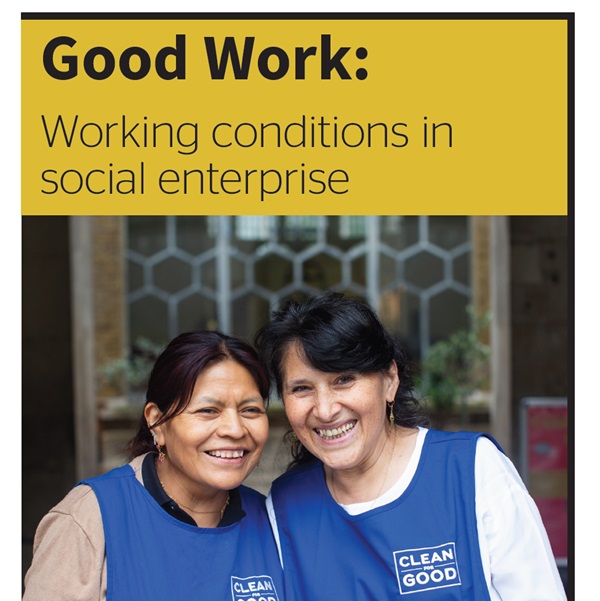
Good Work: Working conditions in social enterprise – July 24
This paper, published in partnership with the Living Wage Foundation, delves into the quality of employment created by social enterprises compared to the wider business community. From recruitment to paying the Real Living Wage (RLW) – the report takes a comprehensive look at just why social enterprises represent business at its best when it comes to work, finding that social enterprise employers are more likely to pay better, offer training, involve employees in organisational decision-making, and retain staff.
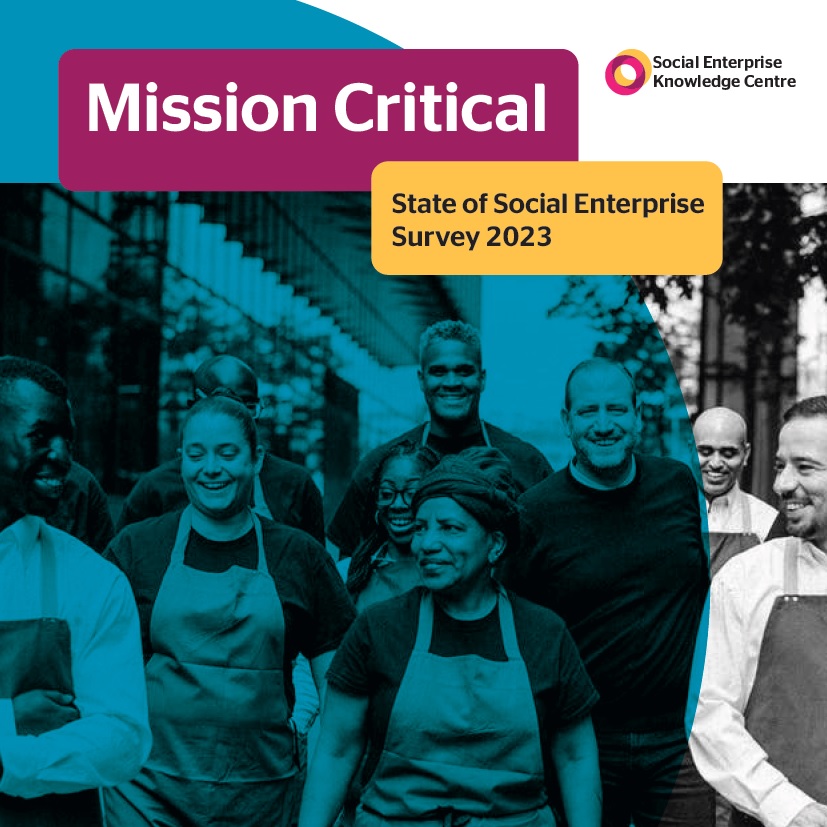
Mission Critical – State of Social Enterprise Survey 2023
The 2023 State of Social Enterprise report shows a growing sector that is not only profitable and productive but truly pioneering. We estimate that there are 131,000 social enterprises across the country, representing almost one in 42 of all UK businesses – and we find they are not only helping people and planet but also boosting our economy, turning over around £78 billion and re-investing £1 billion in profit into their vital missions.
The research finds that social enterprises are also continuing to break down employment barriers around gender, race and class through workforce diversity. They are also actively addressing environmental issues, with almost a fifth fighting climate change as their core mission
Looking in depth at what it means to be a social enterprise today, overall the report shows a movement creating huge impact despite complex challenges.
If you’d like to read the executive summary of the report containing the key stats and findings please click on the link below:
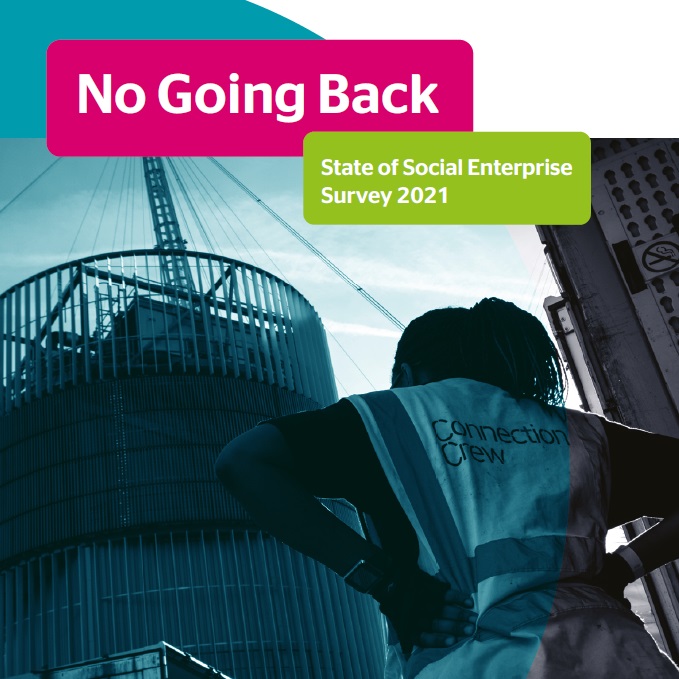
No Going Back – The State of Social Enterprise Survey 2021
No Going Back – The State of Social Enterprise Survey 2021 is the latest state of the sector report written by Social Enterprise UK and supported by Barclays. It shows that in spite of the challenges posed by the COVID-19 pandemic, social enterprises are delivering economically, environmentally and socially.
The research found that social enterprises outperformed traditional businesses when it came to growth and innovation, reducing inequalities, creating jobs and building a more inclusive economy.
Social enterprises are also more representative of wider society than other businesses, with more women leaders and leaders from racialised communities. They empower communities, prioritising staff engagement and ensuring beneficiaries are involved in decision making.
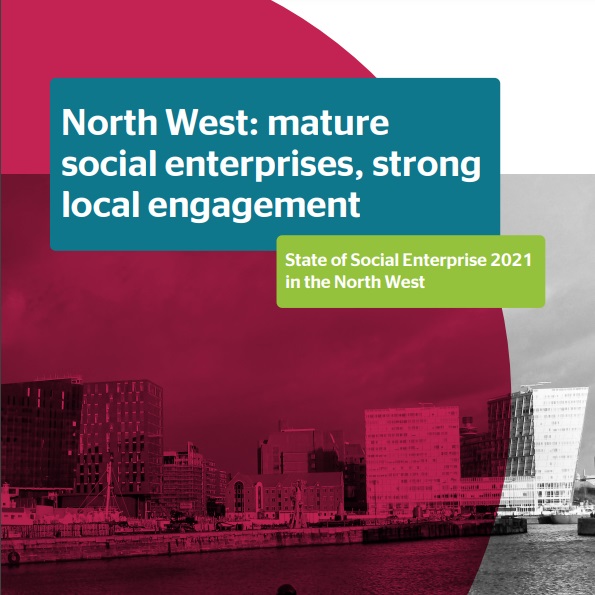
State of Social Enterprise in the North West – 2021
The North West is home to a mature regional ecosystem with social enterprises here tending to be well established. Less generate their income through trading and more have seen turnover decrease but social enterprise here are more likely to generate a profit.
They are more likely to pay the Living Wage and are more likely to have representatives of their local community on their Board.
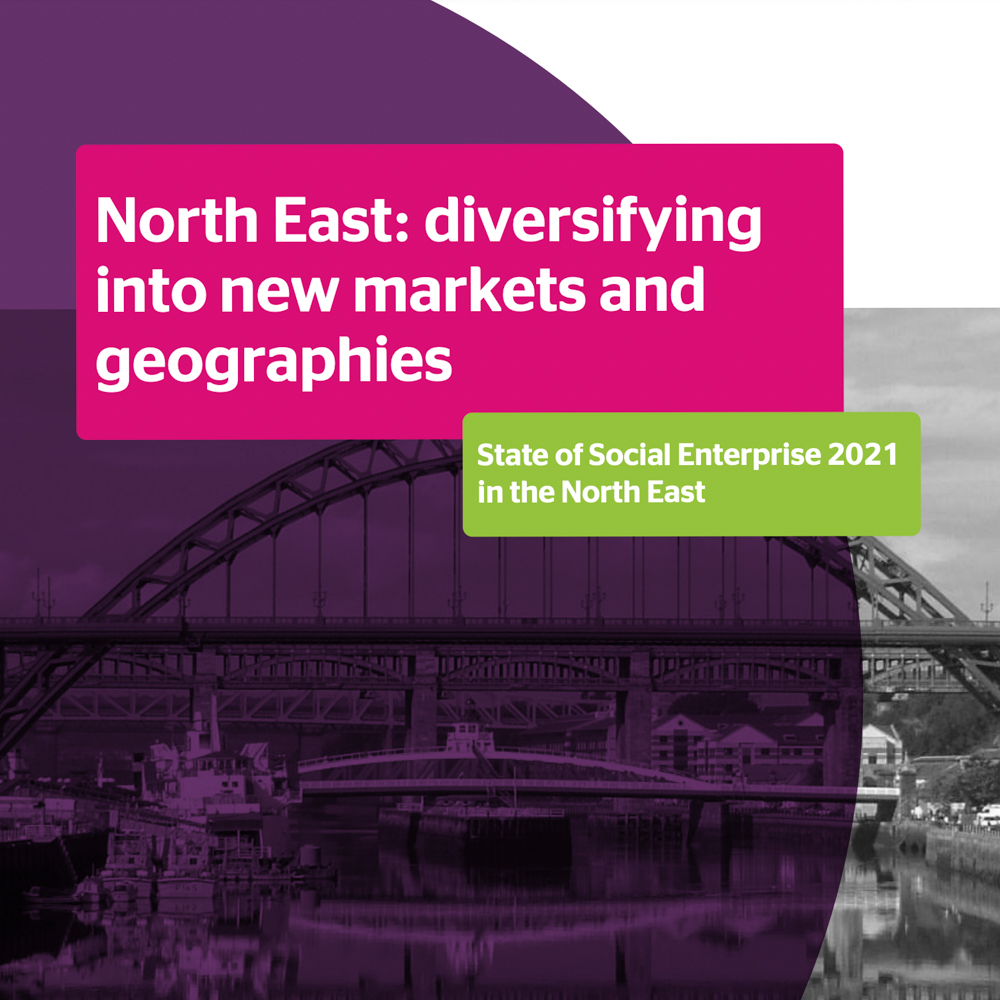
State of Social Enterprise in the North East – 2021
The North East is more likely to be the home of long-established social enterprises but also has high start-up rates. Social enterprises here are doing well financially with half increasing their turnover in the last year.
North East businesses are more likely to be in the retail sector and mirroring this most generate income through trading with the public. Their staff teams are as, if not more, representative of the community they serve in terms of gender, ethnicity and disability.
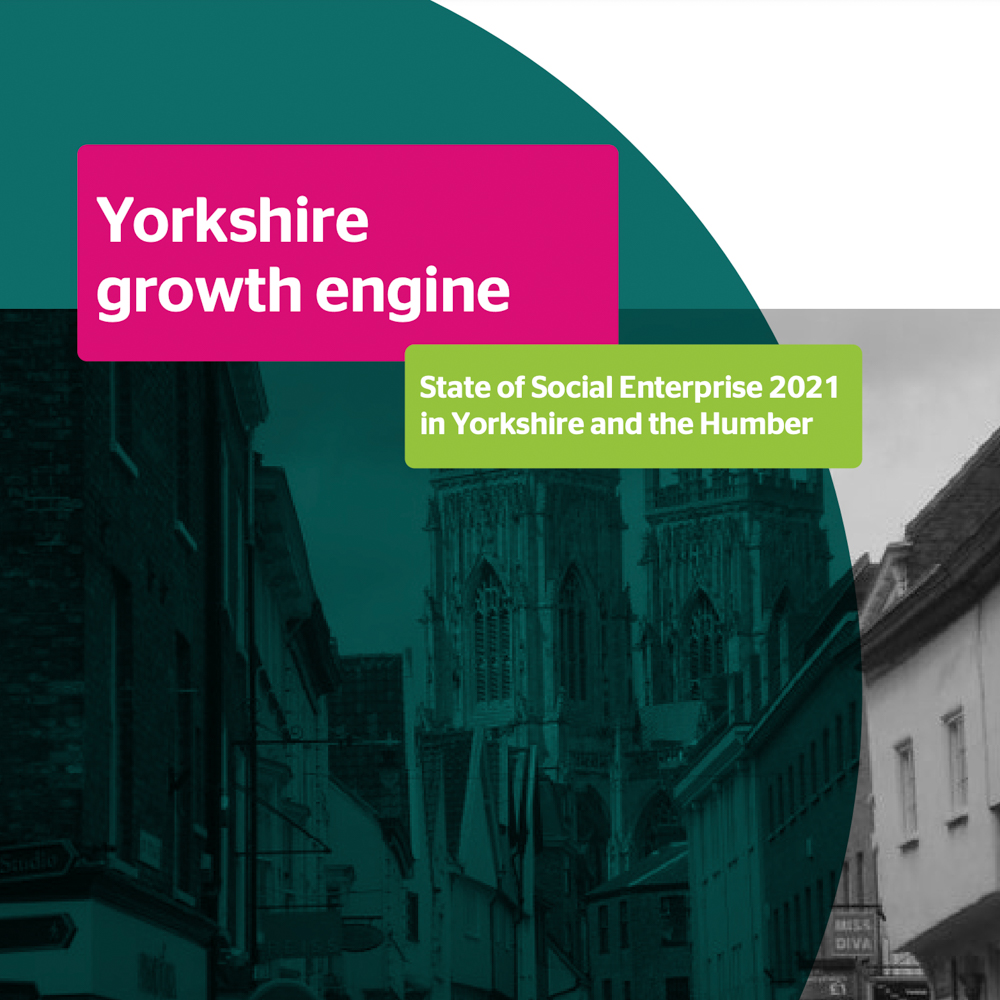
State of Social Enterprise in Yorkshire and Humber – 2021
Social enterprises in Yorkshire and Humber are more likely to have increased their turnover and have higher expectations for both turnover and staff growth.
More social enterprises here trade with the public sector and there was a higher increase in public sector trading in the region than elsewhere.
Yorkshire and Humber social enterprises are less likely to apply for finance but those that did are successful in raising more than their counterparts.
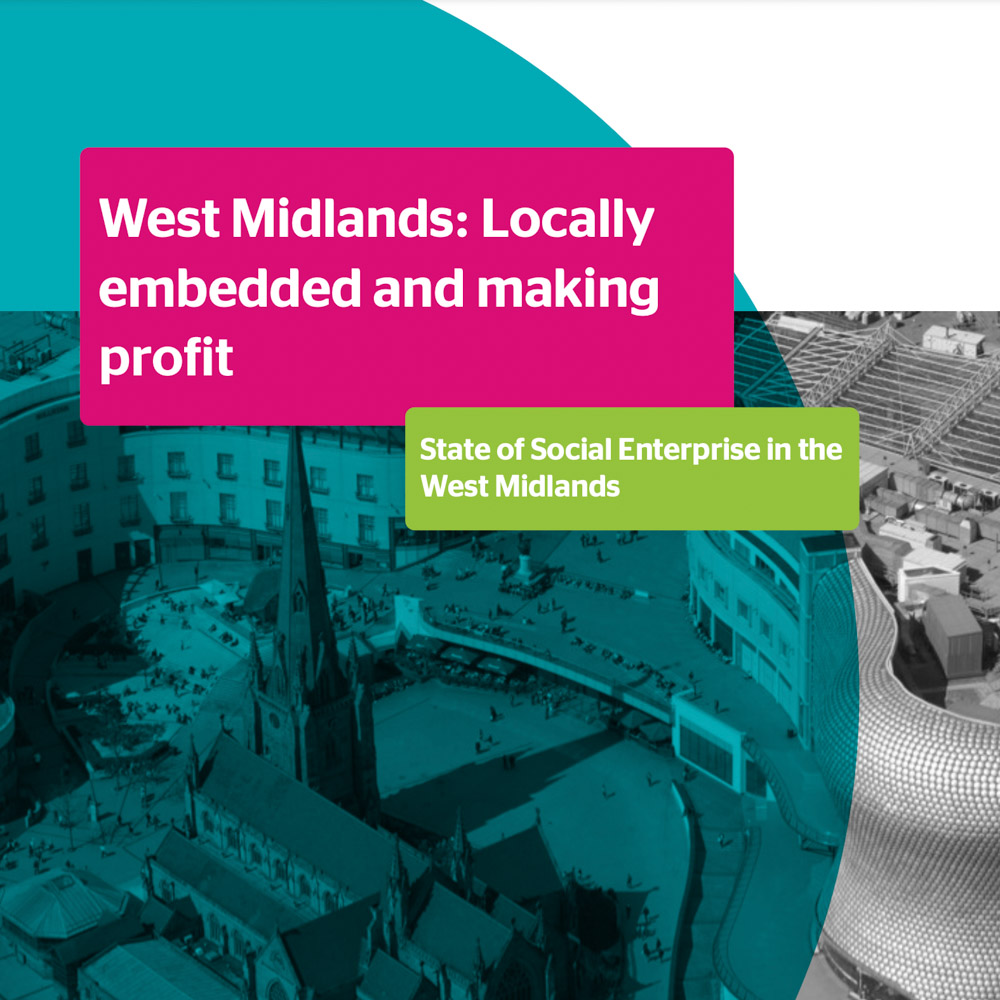
State of Social Enterprise in the West Midlands – 2021
Social enterprises in the West Midlands have fared comparatively well over the last year – they were more likely than the UK average to have made a profit or surplus and more likely to have increased turnover. They also had a slightly higher average turnover than social enterprise nationwide.
They are more likely to be led by women and are also more likely to have representatives of their local communities on their Boards.
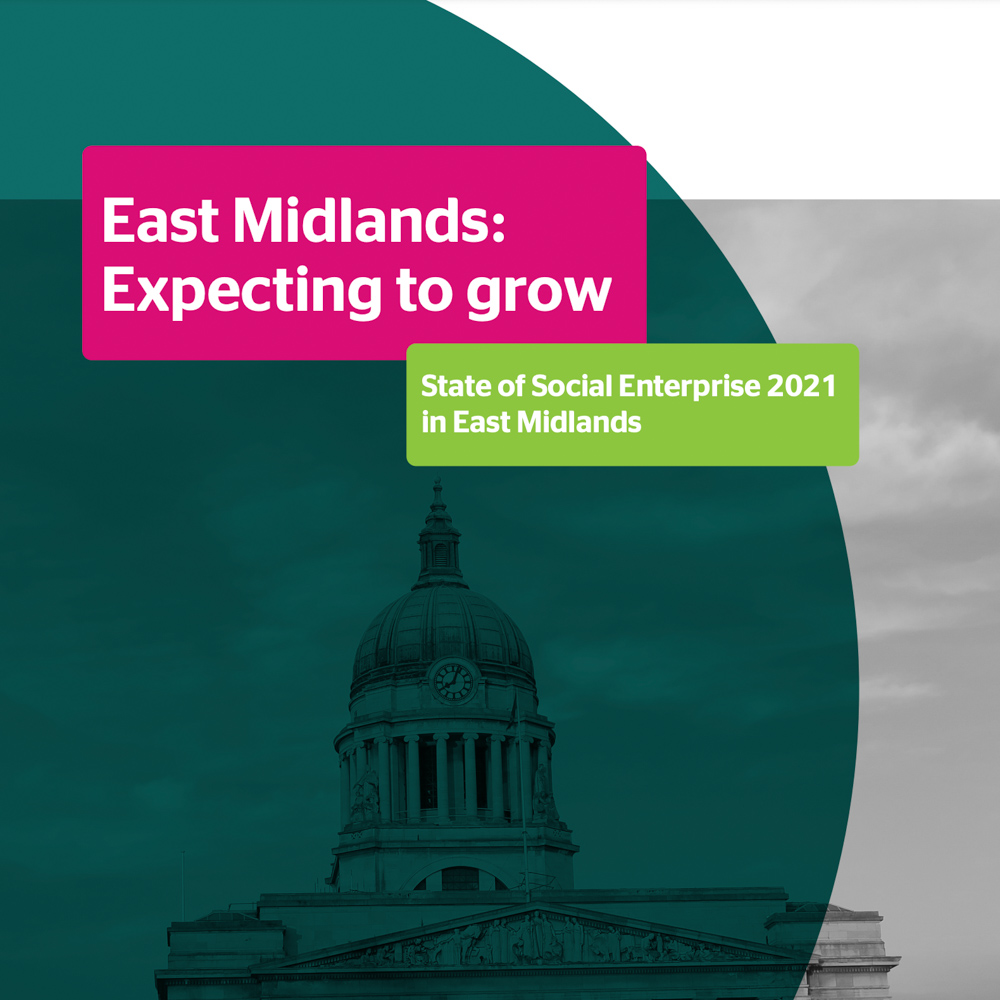
State of Social Enterprise in the East Midlands – 2021
Social enterprises in the East Midlands are more likely to be start-ups. They have seen lower growth in turnover and staff but are anticipating growth in turnover.
Social enterprises in the region were more likely to be led by people from racialised communities. They are also more likely to be trading in the environmental sector, also prioritising social and environmental factors over cost when it comes to procurement.
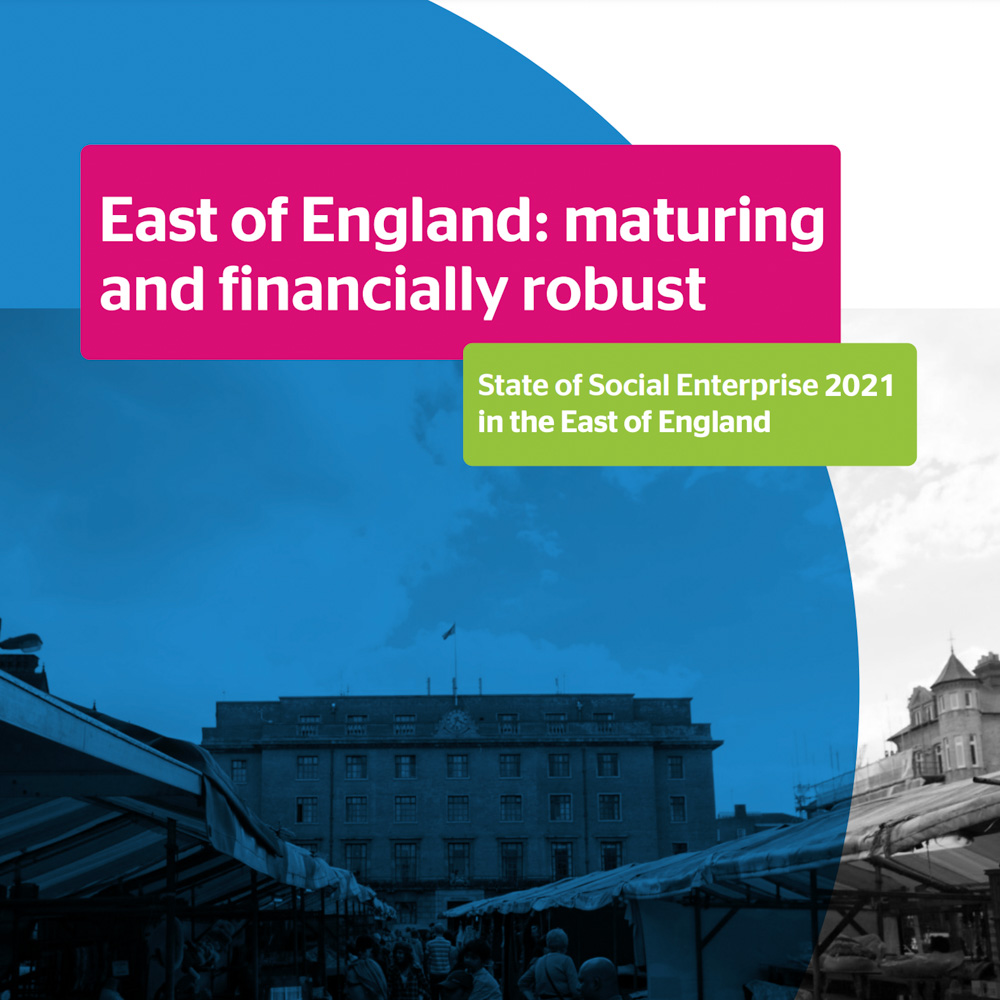
State of Social Enterprise in the East of England – 2021
Over the last year 60% of social enterprises in the East of England made a profit and 54% increased their turnover. There are fewer medium-sized businesses in the region with larger and small social enterprises dominating the landscape.
The region has a higher than average proportion of health and social care social enterprises and a greater proportion of income was generated through trading with the public sector here.
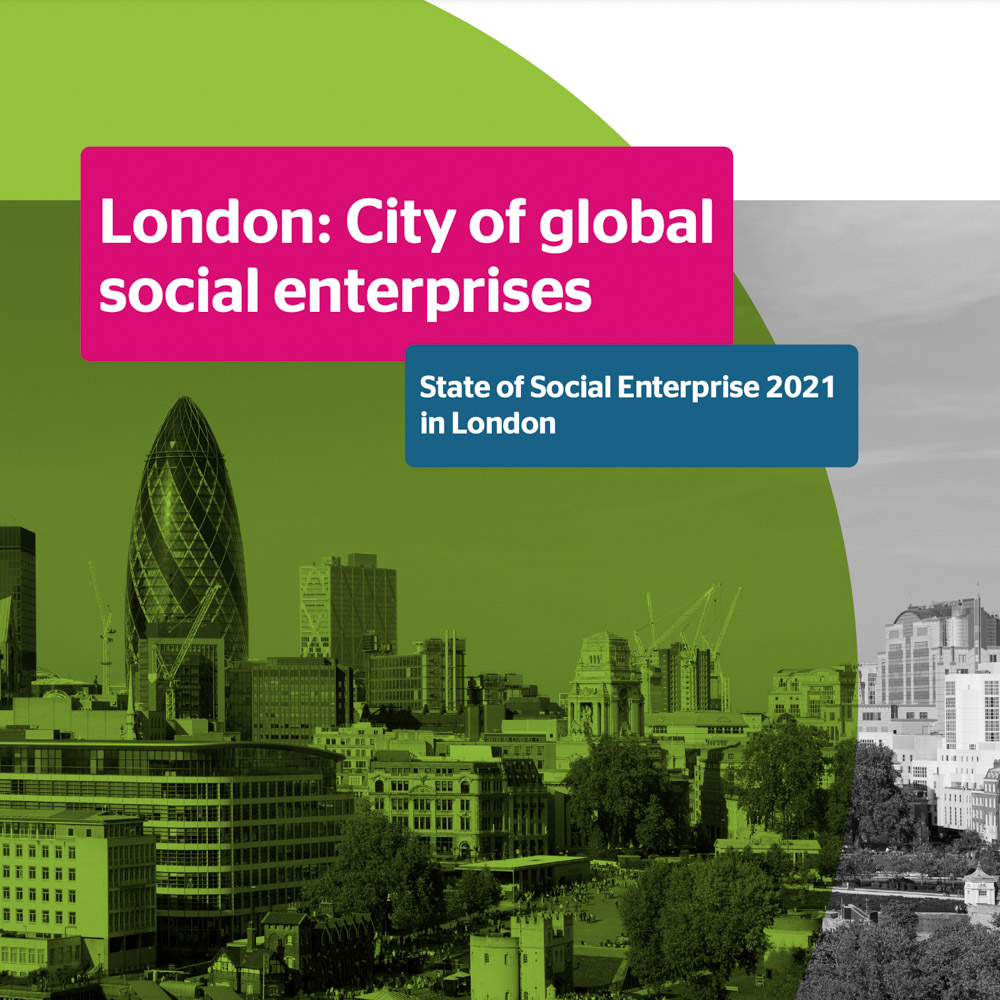
State of Social Enterprise in London – 2021
Social enterprises in the capital are significantly more likely to operate internationally. They are optimistic about growing their turnover and are also expecting to grow staff numbers.
They are more likely to apply for finance and also more successful in terms of the amount raised compared to the amount sought. London social enterprises are more likely to be addressing racism as a core objective.
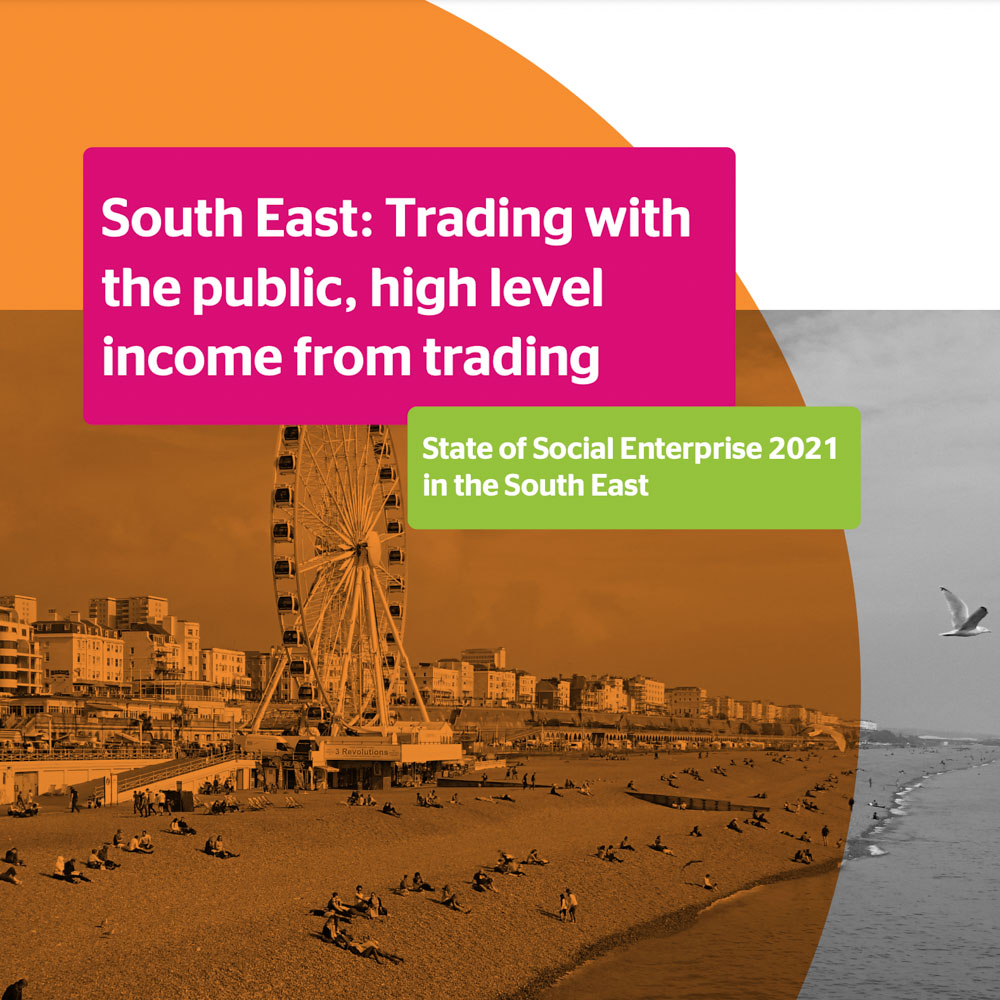
State of Social Enterprise in the South East – 2021
Social enterprises in the South East generate 84% of their income through trading. They have a high average turnover of over £3 million and are more likely to operate beyond their local and regional base. Despite this, nearly two-thirds involve beneficiaries and their local community in organisational decision making.
They are, however, less likely to offer training or to involve staff in decision making. There has been a decrease in the proportion of social enterprises in the South East paying the Living Wage.
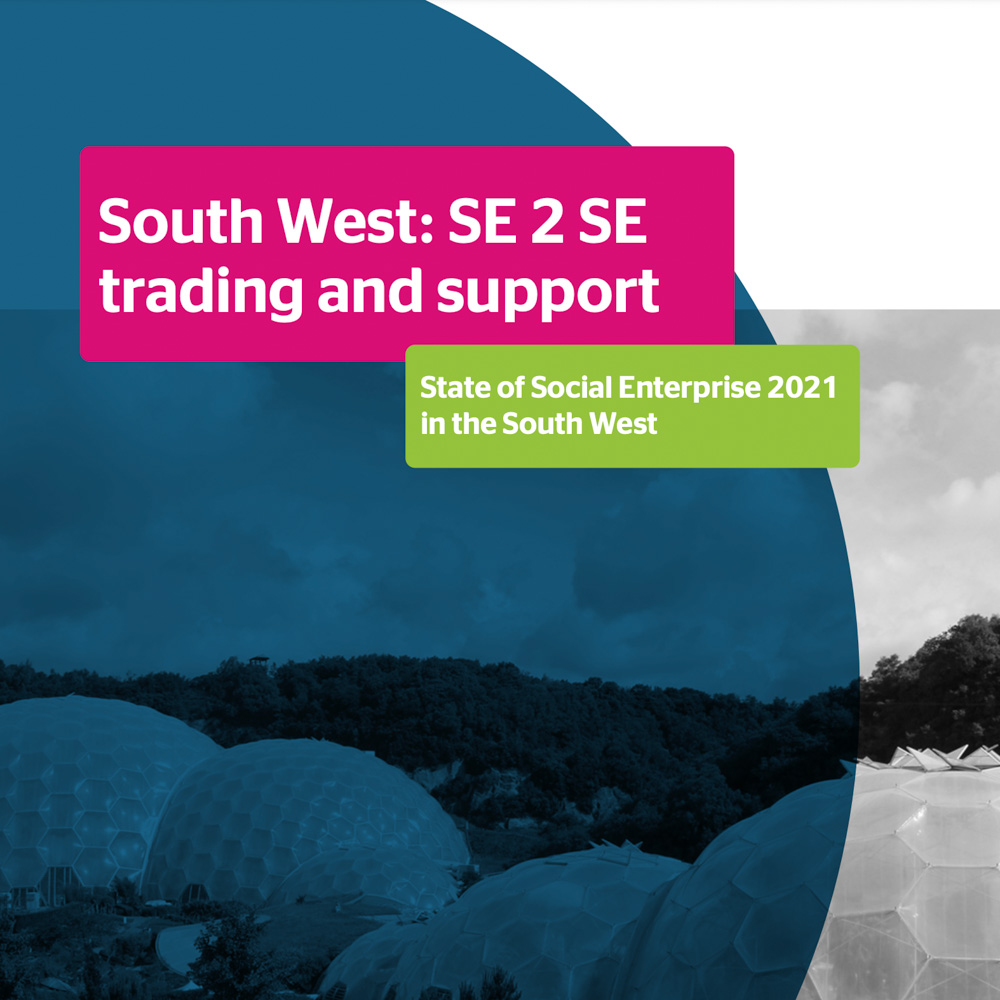
State of Social Enterprise in the South West – 2021
Social enterprises in the South West are more likely to work with and generate revenue from other social enterprises. They are less likely to be small businesses with fewer in the region turning over less than £500,000.
The proportion of social enterprises in the South West paying the Living Wage is higher than the UK average for social enterprises. Social enterprises here are actively seeking finance but struggling to secure it.
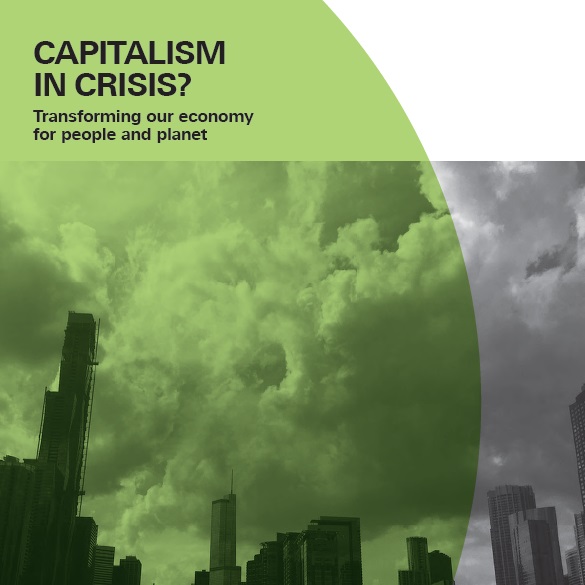
Capitalism in Crisis? – State of Social Enterprise Survey 2019
The 2019 State of Social Enterprise report written by Social Enterprise UK, and supported by Santander showcases how social enterprises are outperforming their peers whilst tackling the triple threat of economic stagnation, social division and environmental meltdown. In order to resolve the crisis in capitalism, more social enterprises are needed to rebalance the UK economy.
The data from the 2019 SOSE survey was used to publish the first regional cuts of the report looking in more depth at the state of the sector across England’s nine regions. The reports followed the same format as SOSE looking at economic performance, social impact and the environment. The 2019 regional SOSE reports are available on request – please contact research@socialenterprise.org.uk to access this data.
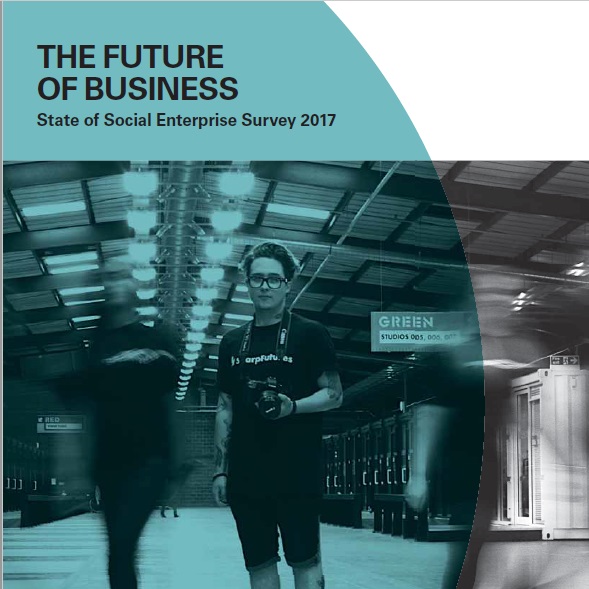
The Future of Business – The State of Social Enterprise Survey 2017
The 2017 State of Social Enterprise Report, supported by Santander showed a commercially resilient sector outperforming mainstream SMEs when it comes to turnover growth, innovation, business optimism, start-up rates, diversity in leadership and more. It points towards what the future of business could look like.
This 2017 State of Social Enterprise report marked the 10th anniversary of Social Enterprise UK beginning this research series.
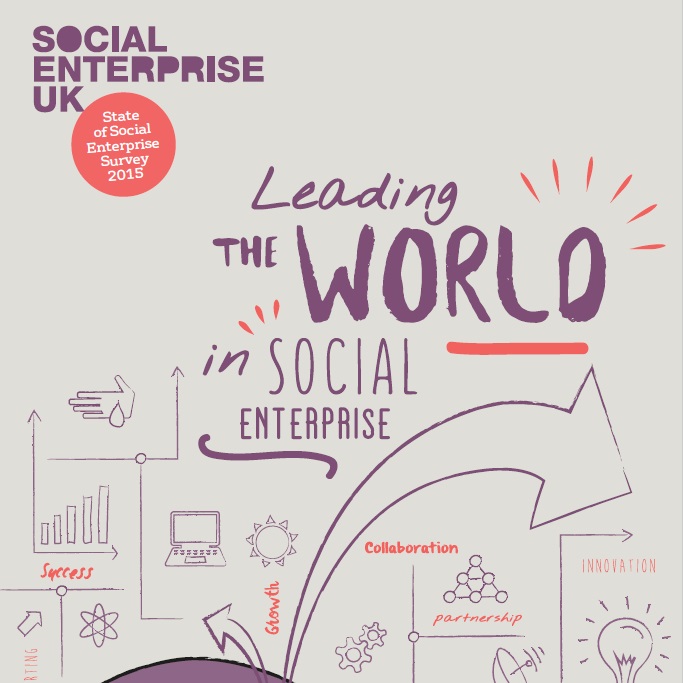
Leading the World in Social Enterprise – The State of Social Enterprise Survey 2015
The State of Social Enterprise Report 2015, supported by Santander, is the most comprehensive research undertaken into the state of the sector.
This report shows=ed that social enterprises in the UK are thriving, outperforming their mainstream SME counterparts in nearly every area of business: turnover growth, workforce growth, job creation, innovation, business optimism, and start-up rates. The findings revealed that in a time of public sector austerity and globally networked markets, social enterprises were providing real answers to significant social and environmental problems.
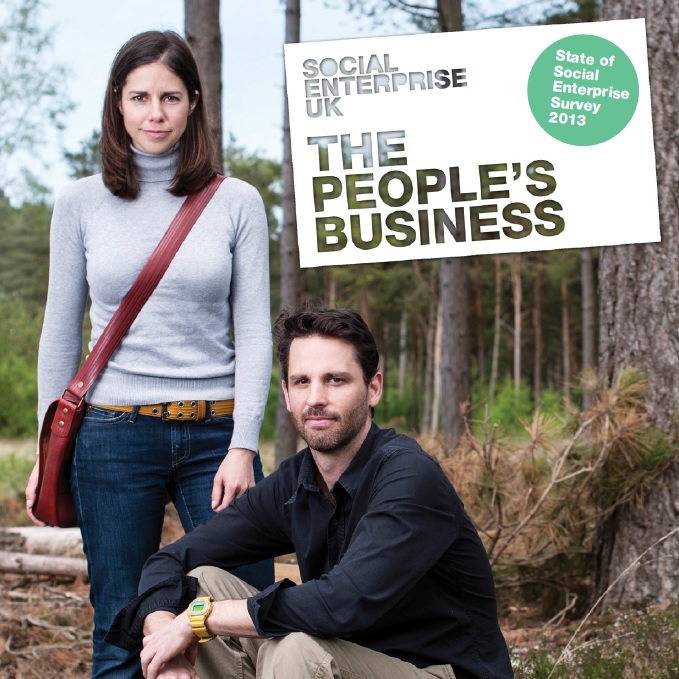
The People’s Business – The State of Social Enterprise Survey 2013
Figures published in ‘The People’s Business’ revealed a thriving social enterprise sector in the UK, attracting a wave of entrepreneurs and out-performing mainstream business. This report was supported by the Royal Bank of Scotland Group.
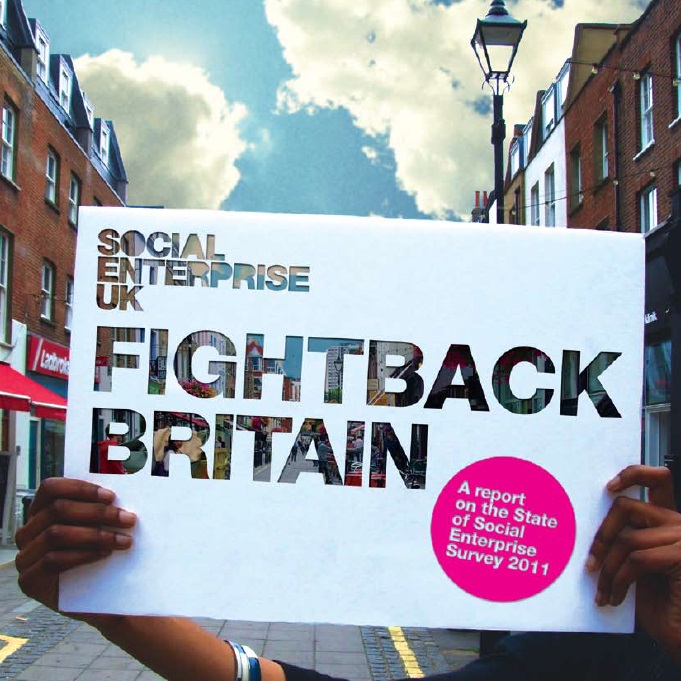
Fightback Britain – The State of Social Enterprise Survey 2011
The key findings of the 2011 State of Social Enterprise survey showed that the social enterprise sector is dynamic, attracting entrepreneurs, working in the UK’s most deprived communities and tackling the root causes of deprivation. As a sector social enterprises were shown to be both out-pacing and out-innovating comparable SMEs.
